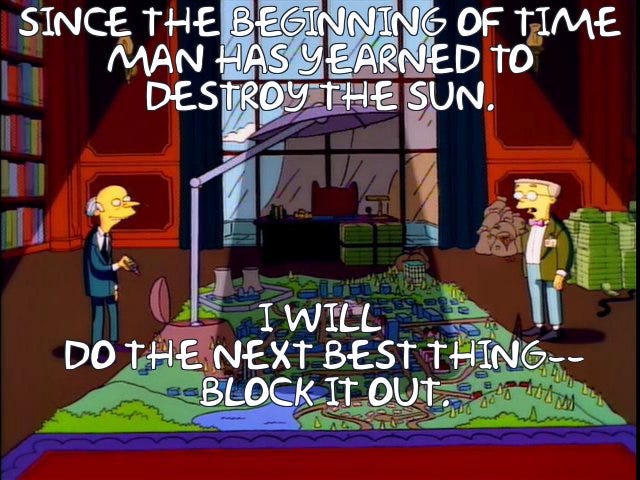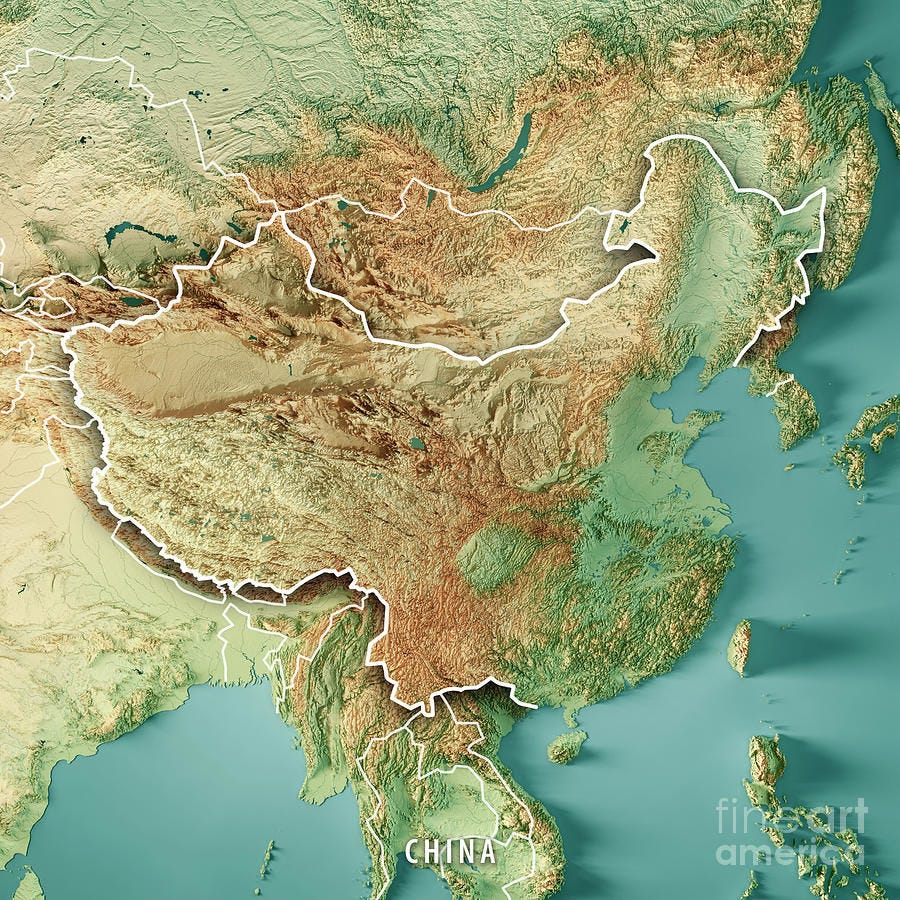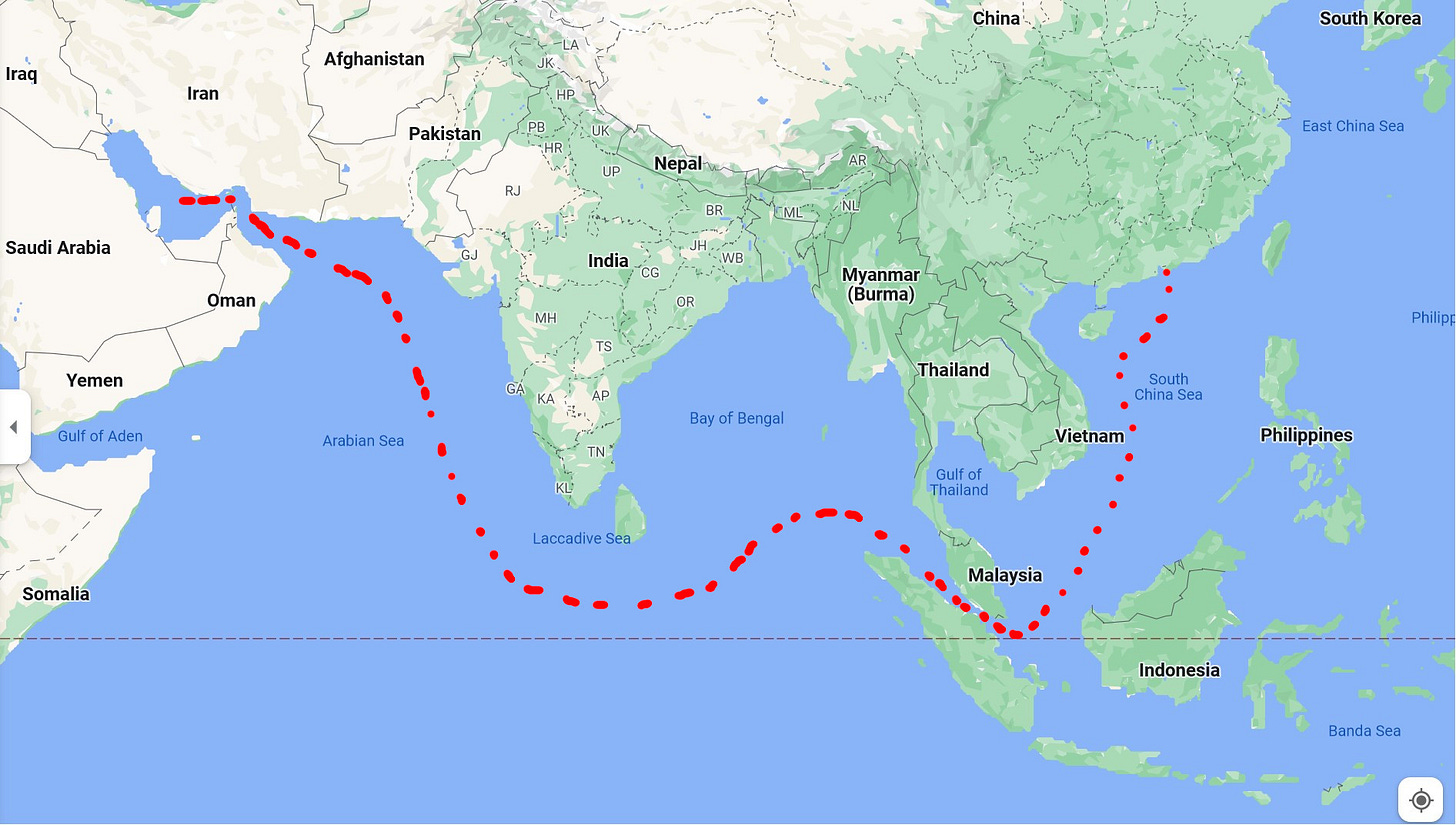Every year the CCP spends a small fortune on marketing, trying to convince the impressionable that China is the next big thing. If you believe the propaganda then it’s only a matter of time before the commies with capitalist characteristics usurp America as the world’s superpower.
According to the narrative, China will go on to have a long and glorious reign as the United Stanks sinks into irrelevance, dragged down by inept leadership and glaringly illogical policies.
Granted, America is not currently experiencing its finest decade and the parallels with the late stage Roman empire are striking. However, as a rule it’s unwise to place much faith in Chinese propaganda. There are a dozen verifiable reasons why America is a superpower, none of which are affected by its political class or ideologies du jour. It’s like a gifted athlete who smokes and parties on the weekend. That person isn’t living up to their potential, but they’ll still kick your ass on the court.
You won’t hear about these geographic blessings on CNN or in your local newspaper. Most people probably aren’t even aware of them, but acknowledged or not they’re what make America suited to be a superpower. That’s part one of this article. In part two I’ll explain why China, due to its remarkably unfortunate geography, will need a small miracle to maintain a hegemony in an increasingly hostile environment. Let’s find out how much paper is in the tiger, shall we?
What I’m about to share is knowledge I’ve assembled over the years, but much of it can be attributed to a single book: Peter Zeihan’s The Accidental Superpower. No matter what you think of Zeihan as a media personality — he can be brash and suspiciously confident in my opinion — his book is excellent. I also enjoyed Zeihan’s Disunited Nations, which came out in 2020, but I think The Accidental Superpower is the better choice. The following are a few of the most important lessons I took away from my reading.
America’s geographic blessings
Oil
America can produce enough oil domestically to meet our energy needs. We also have so much natural gas that we’ve become the world’s largest exporter of the substance. Given our abundance it’s mildly surprising that we’re also the world’s second-largest importer of petroleum. Why is that?
The economic collapse of the fracking industry has reduced domestic production.
Political pressure to ban drilling has also decreased production.
The American Navy is strong enough to secure our oil trade routes which means we have the luxury of importing oil.
One final factor, oil refineries are purpose built for specific grades of crude. American refineries are old and many were built to process Saudi crude. They also work well with the thick sludge that comes out of Venezuela, which is one of the reasons that Biden is pursuing a partnership with the country. Unfortunately, our refineries don’t like the light sweet crude that comes from fracking.
Farmland
Rough estimate, America has about 900 million acres of farmland. Have you ever driven through Nebraska in summertime? As Americans we take this fecund landscape for granted but it’s actually a huge deal.
America can grow enough food to feed its domestic population. In fact we grow so much food that we have plenty left over to share. We set a new record for food exports in 2021, a cool $177 billion worth of calories sent abroad. Being able to feed itself provides no small amount of security to America, making the country resistant to blockades and sanctions.
Rivers
Rivers are a cheap way to transport goods between cities, even in the modern age. Prior to the invention of mass media, rivers also served as a cultural connection between far-flung locals which helped to unify the country. America is number six in the world for miles of navigable waterways. Rivers also play an important role in irrigating crops, and we’ve got hundreds of them flowing through our most fertile regions.
Friendly borders
America shares a border with Mexico to the south and Canada to the north. Mexico supplies America with low-cost manufacturing and Canada is all too happy to send us their excess oil. Neither one of these countries is going to launch a land invasion in the near future.
Two oceans
Can you believe America’s luck? It has access to not one but two oceans! Even if a hostile country was able to blockade America on one side, it almost certainly couldn’t cut off the United States on both sides. There is even historical precedence for this.
Kantai Kessen refers to Japanese naval doctrine in the second world war. The Japanese knew that they couldn’t build a numerically superior fleet to America. Their solution was to build a higher quality fleet and then beat the Americans in a decisive battle royale from which the Americans couldn’t recover. If you’re interested in this topic you’ll love this video.
The trouble with Japan’s strategy is that it suffered from dog-chasing-the-car syndrome. If Japan did manage to knock out America’s fleet in a grand Coup de Grâce, what then? The Japanese couldn’t blockade the entire American west coast, it’s too large.
However, even if they could manage it, America could simply rebuild its fleet on the Atlantic coast, send it through the Panama canal and harass the Japanese until they were forced to retreat.
Navigable interior
You can easily drive from one end of America to another. I know, I’ve done it. We as Americans take this for granted but having a country that’s a single mass with a flat interior is actually one of our accidental superpowers.
Unifying a country is much simpler if various regions can be easily connected.
Shipping commercial and military goods is cheaper.
Setting up utility connections like natural gas, electricity and comms is easier.
Let’s look at a counter example. Last year my friend and I went to Scar Reef in Sumbawa for a bit of surfing. As the crow flies the distance is a scant ~106 miles.
I want you to imagine the longest 106 mile drive in America. For example, when I was a kid we got stuck in a six hour traffic jam in Chicago. All in all, traveling 106 miles probably took us eight hours. That’s highly unusual though, right?
Going from Bali to Scar Reef took me fifteen hours and that was a normal ride. My friend said that sometimes it can take twenty hours. The only way to get between Bali and Sumbawa is two different ferries and these run on random schedules. When they’re full, they’ll go. Not a moment sooner.
That’s just getting between two islands. Now imagine driving from one end of the archipelago to the other. What a nightmare! When your country is one long string of disconnected islands it makes it more expensive to transport goods, doesn’t allow for extended utility connections, reduces economies of scale and also diminishes a country’s unity since the next island over might as well be a different country. Hawaii and Alaska excepting, America must contend with none of this.
Ports
Finally, America also has thirty-five major ports and terminals, second only to Japan’s forty-five. Other countries are not nearly as lucky to have access to so many perfect locations for a large port*. You can’t just stick one of these things anywhere, the conditions must be perfect and once again, America is uniquely blessed with a number of strategic locations to choose from.
*Admittedly, China also has quite a few world-class super-ports.
China’s cryptonite
Geography
One of Zeihan’s greatest insights is also his simplest. To understand how undesirable China’s geography is from a strategic point of view, just flip the map over. China’s coastal waters are a hodgepodge of nations that might not take too kindly to aggressive naval operations. You may have heard these countries referred to as the “First island chain.”
In the map below I circled China in red then drew arrows to the nations boxing them in. That includes The Philippines, Taiwan, South Korea and Japan. Each one of these countries, apart from Taiwan, hosts a US military base(s).
Food
China’s geography is not particularly suited to farming. While China does produce an impressive amount of produce, it remains the world’s largest caloric importer. Every year China imports more than $100 billion worth of foodstuffs, and Zeihan claims that without imports China couldn’t adequately feed its population. Or, at least the country couldn’t feed its citizenry at the level that they’ve come to expect.
Many of China’s imports are vulnerable too. For example, Brazil is China’s foremost supplier of food. Cutting off that supply would be so trivial the US military would let a sleepy intern manage the campaign. Also, it may be worth considering that after Brazil, China’s number one food supplier is… The United States 😯
Hostile interior
China’s interior is tough. Specifically, the large coastal cities like Shenzhen and Shanghai are separated from the interior by expansive mountain ranges. A disconnect between the various regions of China is one of the reasons that the country has had so many civil wars in the past. Compare these two topographic maps to see just how much rocky terrain divides China, compared to America’s mostly flat eastern half where most of our population lives.
While the internet has worked wonders for unification, China still encounters constant difficulty in bringing its country together into a cohesive whole. Zeihan goes so far as to argue that civil war is almost certainly in China’s future. He expects the prosperous, coastal cities will form an alliance against the “flyover country” interior.
Oil
China imports 72% of its oil, making them highly vulnerable to supply disruptions. This is one of the reasons that the country is building coal power plants, nuclear power plants and expanding their solar grid at such a furious clip.
Unlike the United States, Zeihan claims that China does not have enough of a naval presence to protect oil shipments from the Persian gulf. Just take a look at this journey 👇 A tanker delivering oil from Saudi Arabia to China must first sail along the Indian coast, a country that’s increasingly allied with America.
The tanker will then navigate through the Malacca Strait which puts it within easy striking distance of Malaysia, Indonesia and Singapore. Then up between Vietnam and The Philippines before finally arriving in China. There are endless possibilities for China’s enemies to stop the flow of oil, and Xi knows it. To state the obvious: countries that cannot secure their own oil do not stay superpowers for long.
Green water Navy
In The Accidental Superpower Zeihan claims that China only has a green water Navy, that being nautical slang for a Navy that cannot wander far from the coast. However, in my research for this article I found evidence that in the ten years since the book was written China has improved their Navy’s capabilities.
For example, this article from the U.S. Naval Institute points out that China already has a respectable blue water Navy nearly half the size of America’s. Perhaps Zeihan’s dismissal of Chinese naval capabilities was premature, although China has yet to prove their aquatic army in real combat the way America has already done on many occasions.
Conclusions
I hope I’ve been able to give you an appreciation for just how damn lucky America is. Our country has enough farmland to grow its own food, is energy-independent, has friendly neighbors to the north and south, access to two oceans, thousands of miles of navigable waterways, a flat interior for easy connections and dozens of suitable inlets for deep sea ports.
These are the “accidental” quirks of fate that have allowed America to become a superpower. These are also the geographic advantages that will continue to keep America afloat, no matter how outrageous our political class or how much debt we take on. Americans are not going to starve and they’re not going to run out of energy, which is a lot more than can be said for other less gifted countries.
If you’d like to explore these topics further, please buy The Accidental Superpower. It’s a damn good book that reads like a novel. Zeihan gets deeper into topics that I didn’t have time to cover like demographics, the strength of America’s Navy, the role of alliances, how the cold war shaped foreign relations in the decades following the collapse of the Berlin wall, and so much more. China has done a fantastic job of marketing itself as the future, but you shouldn’t count out America till the woman experiencing a caloric surplus sings.














The US won the geographic lottery on this planet. That could explain why, despite committing own goal after own goal, the US remains the global hegemon. It's like the world is playing a game of Risk with a spoiled child who keeps trying to upturn the board despite being clearly on a path to winning.